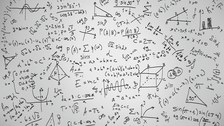Basic Studies, Methods and Procedures

© PantherMedia / denisismagilov

© PantherMedia / nataliia

© shutterstock_Gaudilab
The first three semesters of the program each include two compulsory modules in mathematics and statistics. They are all one semester long. The module Mathematics in Engineering Contexts has 10 CP, the other modules comprise 5 CP.
See below for short descriptions of the modules. Details on their scheduling, exam participation restrictions, and more are available on the German version of this website.
Mathematics
- Analysis in Economic Contexts (Analysis im wirtschaftswissenschaftlichen Kontext)
This module teaches the basics of analysis, particularly differentiation, integration, and linear differential equations, and it applies these to various optimization problems.
- Mathematics in Engineering Contexts (Mathematik im ingenieurwissenschaftlichen Kontext)
This module teaches the mathematical prerequisites and skills to capture, assess, and solve engineering problems.
Statistics
- Descriptive Statistics (Deskriptive Statistik)
This module covers basic methods and approaches of descriptive statistics and probability theory. It includes empirical distribution functions, histograms, characteristics of distributions, and combinatorics.
- Inductive Statistics (Induktive Statistik)
In this module, you learn to use probability theory considerations to make statements about the corresponding population based on samples. It involves limit theorems, parameter estimates, confidence intervals, significance tests, correlation measures, and linear regression.



